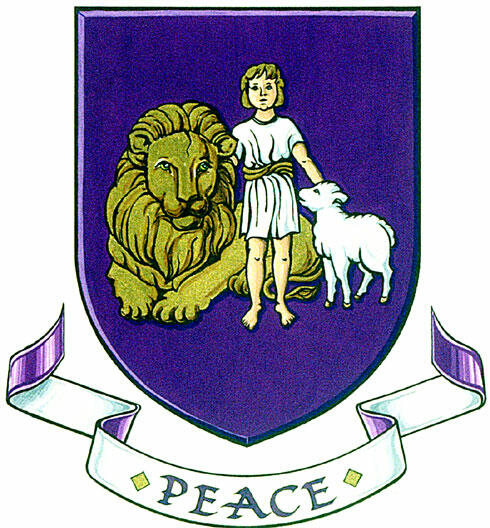
BIBLE PROPHECY:
What did Jesus, Daniel, Ezekiel, Paul, and John teach about the end-times
Copyright © 2015 Paul Joseph Shonebarger Permission granted to reproduce for personal and educational use Scripture quotations taken from
THE HOLY BIBLE, NEW INTERNATIONAL VERSION
Copyright © 1973, 1978, 1984 by International Bible Society.
Used by permission of Zondervan Bible Publishers
Overview
Ezekiel foretold the birth of modern Israel, which occurred in 1948 through the United Nations. Zechariah predicted that Israel will one day accept Jesus as Messiah.The Treaty of Rome established the European Economic Community.This Treaty was later repackaged to define the European Union. Daniel identified this Roman Empire as the preeminent end time superpower 2,500 years ago.Scripture foretold the Chernobyl nuclear power accident. Ukrainian translations, where this disaster occurred, used the word “chernobyl” to signify nuclear contamination centuries before nuclear power was conceived.The Bible does not contain even one false prediction, and ancient Dead Sea Scrolls prove the foretold events were recorded centuries before they occurred.Israel’s religious experts, the Pharisees, were legendary for their understanding about the first coming of the Messiah. Yet they were without a clue when Jesus spoke to them.Listen only to the authentic prophets concerning the end-times—the prophets who wrote the scriptures. With countless verses referenced, this book is an awesome resource
TABLE OF CONTENTS
CHAPTER
1.
Salvation 12.
Covenants 43.
The Rapture 74.
Seven Churches 145.
The Scroll 326.
Seven Seals 357.
Seven Trumpets 468.
Transition 549.
The Last Trumpet 5710.
Israel 6111.
Two Beasts 6912.
Seven Bowls 7713.
Babylon 8314.
Second Coming 8815.
Future Ages 90
APPENDIX
A.
Harvests 96
B.
Seven Years 99
C.
Temple Mount 108
D.
Time Remains 110
1. SALVATION
God planted a garden. He gave Adam authority over this Garden of Eden. Life was magnificent; fellowship with God was routine. God walked in this garden (Genesis 1:1-2:25). God placed two trees in the garden;one was the
tree of life and the other the tree of the knowledge of good and evil.
God told Adam to refrain from eating fruit from the tree that provided knowledge of what is evil but he disobeyed. This sin drove humanity outside Eden into our present world to gain first-hand knowledge of what is evil(Genesis 2:9-3:24).Adam’s transgression disrupted the relationship between God and man.Fortunately, God deeply cared about this broken fellowship and therefore provided the world a Messiah. God’s mighty Savior left a throne in heaven and went to earth in human form to rescue Adam, Eve, and their descendants, to include you and me. Every person on earth has disobeyed God, which resulted in a broken relationship. Every person needs a Savior.
God had a dynamic plan for providing salvation. Jesus excelled as a teacher, a healer, and as a miracle worker. However, none of those things could bridge the gap between a holy God and a rebellious man. A perfect God must hold to perfect justice; accordingly, the offenses (sins) of man must be punished. Because punishment could not be avoided the critical question was—who would endure the punishment?Scripture tells us that before Jesus died, sin was placed upon him, so that a perfect sacrifice would pay the death penalty for sin (2 Corinthians 5:21).Jesus took the punishment that you and I deserve, because the shedding of blood is the only payment God accepts (Hebrews 9:22). In his resurrection,Jesus demonstrated authority over death.God provided a way to eradicate the penalty for sin, and to obtain eternal life, but only on his terms. Each person must acknowledge that he or she has rebelled (sinned) against God, and trust that the shed blood of Jesus—received as a gift—paid the penalty for that sin. It is insufficient to simply believe that God exists (James 2:19). It is never enough for a person to behave in a religious manner, or have another person ask God for forgiveness on his or her behalf. Each person must go directly to the Savior (Hebrews 7:24-27).People must humble themselves before God—as scripture testifies that God crowns the humble with salvation
(Psalm 149:4).God offers each man, woman, and child a personal, restored relationship—to anyone who believes him. Belief in God is important because to not believe what God says, is to imply that he is a liar (1 John 1:10). As an
illustration of this point, both the Old and New Testament state that God accepted Abraham simply because Abraham believed God
(Genesis 15:6; James 2:23). God is able to forgive any sin, but he chooses not to forgive the sin of unbelief.Faith in Jesus is similar to faith in an airplane. When a passenger boards an airplane, that person believes the plane will fly and land safely. The passenger does not put faith in his or her own ability to fly. In a similar manner,trust God. Trust him to save you, forgive you, and one day safely transport you to heaven. Your belief shows faith in God’s abilities, promises, and faithfulness.

